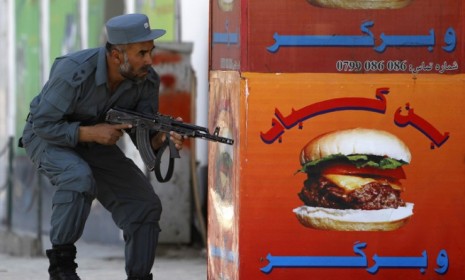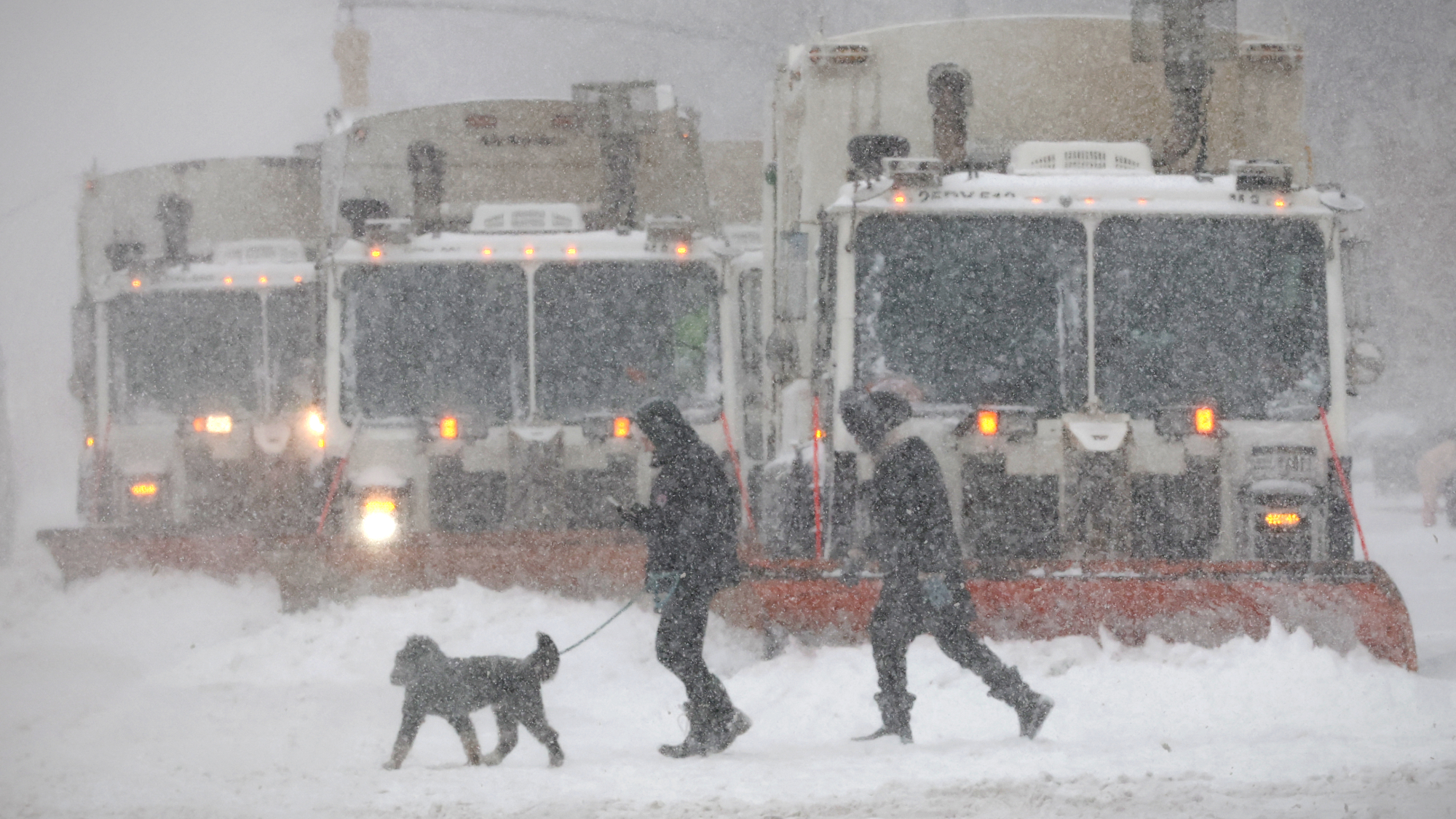4 lessons from the Taliban's 'spring offensive'
Coordinated attacks in Kabul and other cities in Afghanistan shed light on the state of the war against Islamist insurgents

Taliban insurgents launched coordinated assaults on several Afghan cities on Sunday, including the capital, Kabul, where high profile targets were attacked. As part of what the Taliban called its "spring offensive," militants fired rocket-propelled grenades at Kabul's NATO headquarters, as well as the city's British and German embassies. What does the violence say about the Islamist insurgents' capabilities? Here, four lessons for the West:
1. The U.S. gains nothing by staying
"We have done what we came for," says Charles P. Pierce at Esquire. "Osama bin Laden is as dead as Lord Kitchener; the al Qaeda network, at least in Afghanistan, is in a shambles." But we simply "do not have the power to enforce a stable government on a country that so manifestly resists the notion, especially when it comes from foreigners." So what's the point in staying until the planned withdrawal in 2014, other than to take that blame for more and more of the suffering of Afghan civilians? If the weekend attacks proved anything, it's that the Taliban will "be able to do this again in two weeks, a month, every six months."
The Week
Escape your echo chamber. Get the facts behind the news, plus analysis from multiple perspectives.

Sign up for The Week's Free Newsletters
From our morning news briefing to a weekly Good News Newsletter, get the best of The Week delivered directly to your inbox.
From our morning news briefing to a weekly Good News Newsletter, get the best of The Week delivered directly to your inbox.
2. Afghan forces have a long way to go
The government of Afghanistan insists the attacks failed, says Tim Marshall at Sky News, because the Taliban suffered most of the casualties and Afghan forces put down the assaults with no help from NATO. But "it took Afghan forces 18 hours to subdue about a dozen fighters and even then they required the help of Norwegian special forces." That's not a good sign. Nor is it encouraging that the Taliban fighters were able to strike deep in the heart of Kabul, suggesting "a failure in intelligence and probably help from the inside."
3. The Taliban's symbolic victories are still victories
"The value of the Sunday Taliban attacks is more symbolic than strategic," says Scott Baldauf at The Christian Science Monitor, especially given that Afghan security forces managed to contain the situation without calling for foreign help. "But by deploying small numbers of fighters to a variety of locations in Kabul's diplomatic quarter, the Taliban has played to its own strength — of creating a sense of insecurity among the Afghan population, and generating headlines that will embarrass both the Afghan government and its Western backers." In a war for hearts and minds, that counts for something.
A free daily email with the biggest news stories of the day – and the best features from TheWeek.com
4. Pakistan is not doing its part
Just when the U.S. and Pakistan "seemed to be patching up their vital but troubled relationship," say Chris Brummitt, Rahim Faiez, and Deb Riechmann at The Associated Press, these attacks "will likely re-ignite anger in Washington over Pakistan's unwillingness to crack down on militants using its territory as a base to target neighboring Afghanistan." Still, the Obama administration will have to be careful, weighing the effect that "any public criticism of Pakistan may have on the country's cooperation with [the U.S.] in other areas, including getting supplies to troops in Afghanistan and negotiating peace with insurgents there."
-
 Political cartoons for January 26
Political cartoons for January 26Cartoons Monday's political cartoons include an ICE storm, the TikTok takeover, and Iranian-style reform
-
 Winter storm lashes much of US South, East Coast
Winter storm lashes much of US South, East CoastSpeed Read The storm spread across 2,000 miles of the country
-
 China’s Xi targets top general in growing purge
China’s Xi targets top general in growing purgeSpeed Read Zhang Youxia is being investigated over ‘grave violations’ of the law